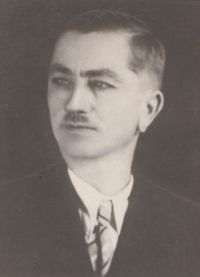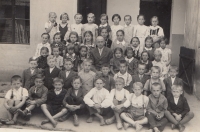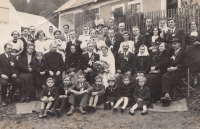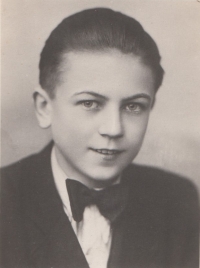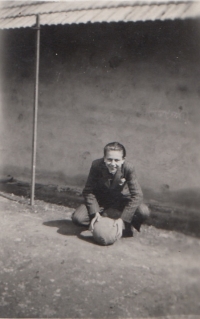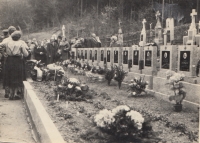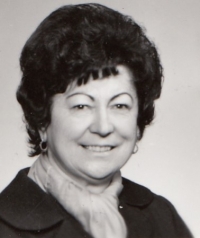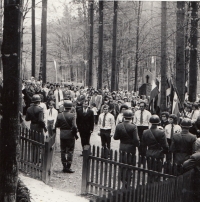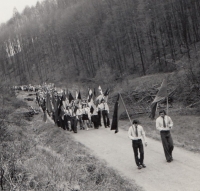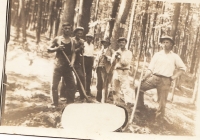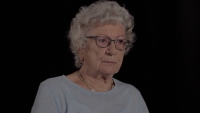They shot our men, we women were left
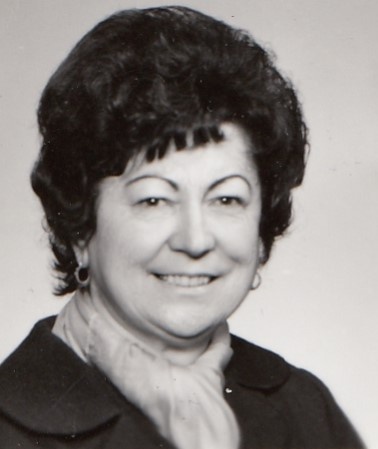
Stáhnout obrázek
Jitka Zemánková, née Pravdíková, was born on March 5, 1930 in village Salaš, in the valley of the Chřiby forests, where the partisan group Olga operated during the war years. Until 1945, the Pravdíks lived in relative peace. They had a modest farm, the father František Pravdík worked as a forest worker and the mother Anastasia took care of Jitka and her three other siblings. In April 1945, the partisans from the Olga division managed to capture German Major General Dietrich von Müller. The Nazis suspected that someone from Salaš was helping the resistance fighters. However, they did not find any evidence in the raid they soon carried out. When the assistant hunter Josef Dobeš called the Salaš men to help to the partisan on April 29, 1945, no one knew what a tragedy would take place. The men were to meet the partisans in Tománek‘s gamekeeper‘s lodge, which served as a base for Olga‘s unit. From there, they were lured to the nearby Lime works under the false pretext that they would get weapons there and learn how to handle them. As soon as the Salaš men arrived at the place and sat down on the ground, the men who brought them there started shooting from the submachine guns. The only survivor of the massacre was František Mlýnek, who managed to escape, which after the war became the subject of speculation about a possible betrayal. Among those ones who were shot was Jitka‘s father František Pravdík and her brother František. Jitka Zemánková began to suffer from nerve attacks after the horror, just like her mother. When she married Jaroslav Zemánek in 1949, the pain partially calmed. She and Jaroslav lived together for eleven years and gave birth to three sons. As if the loss of her father and her brother was not enough, Jitka Zemánková also lost her youngest son and husband, who died from a long illness in the early 1960s. She never fully recovered from the tragedy that happened in her family.
